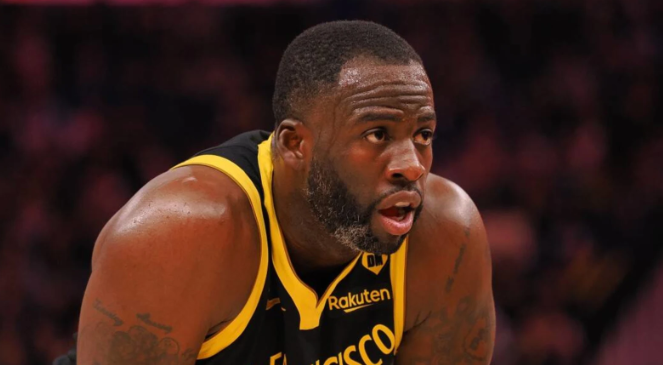“Unveiling the Champions League Knockout Stage: Where Does Manchester City Stand in the Battle for Glory?”
The ranking for the Champions League knockout phase contenders and the biggest shocks of the group stage Bill Connelly, ESPN staff writer December 14, 2023, at 3:53 p.m Erling Haaland, left, and Julian Alvarez were outstanding for Manchester City in the UEFA Champions League group stage.

Where are Man City in the finals of our competition? Ryan Crockett/DeFodi Images via Getty Images The last group stage of the Champions League ended on Wednesday. In the coming season, UEFA will move its main competition to the so-called “league stage” instead. where 36 teams (out of 32) play eight matches against teams from different banks from September to January. Your place in the finals is determined by your overall ranking in one table, with the top eight going straight to the round of 16, where the ninth-16th will play. and 17.-24. . Everything will be fine. I don’t hate the new format as much as others – given the level stakes, many teams would have to have a lot to play for to go deep into the league stage – but the current format was certainly simple and clean. And you can form mini-races by playing teams twice in a short period of time. For example, Union Berlinand#039’s first trip to the Champions League certainly meant something, both hosting European giants Real Madrid and playing at the Bernabeu. However, change is coming, and the group stage of the 2023-24 season was the last of its kind. With the last 16 teams known – the draws for the first knockout stages take place on Monday – we look back at how the group stage went and rank the remaining teams by probability of victory. The biggest surprises of the Champions League group stage Let’s face it: thanks to the layered balance of the Europeans, there usually aren’t that many surprises in the group stages. There are bound to be upsets, but most teams that should advance will eventually advance. But hey, I guess that makes the surprises more surprising! And we had at least some big developments. Copenhagen replaced Manchester United Soccer has been around long enough that you can almost always find a historical tie when you watch. However, it is rarely so obvious. On October 20, 1993, Manchester United attempted to become the first English team to qualify for the group stage of the newly formed Champions League. Thanks in part to Bryan Robson’s third-minute strike, Alex Fergusonand#039; 2-0 lead but quickly saw it slip away. Eric Cantona scored in the 81st minute to salvage a 3-3 draw, but the margin came at a cost: after a 0-0 draw in Istanbul a fortnight later, Galatasaray were on top of the away goals. andquot;The better team by some distance won,andquot; columnist Rob Hughes wrote in The Times. Almost exactly 30 years later, United’s last group stage experience ended at the hands of their old rivals. The initial qualification probabilities for Group A were quite clear: while Bayern Munich were the clear overall favorites to qualify (Caesars’ estimated probability in September: around 83%), Manchester United were not far behind (75%). It would be a surprise if either Galatasaray (28%) or FC Copenhagen (14%) were ahead of the three-time European champions. Harry Maguire and Manchester United had a tough time in the UEFA Champions League as they were eliminated from the group stage. James Gill/Danehouse/Getty Images They both did. After a semi-encouraging 4-3 loss to Bayern to start the group stage, United managed to lose at home to Galatasaray, lead 2-0 away to Copenhagen and take a further 2-0 lead at 3-3. Draw to Galatasaray and lose 1-0 to Bayern at Old Trafford. While teams like Borussia Dortmund masked their poor league form with strong Champions League performances, United showed all their weaknesses on the UEFA stage. In Premier League games, thanks to one-goal wins and match-winners, they have picked up more points than their performances would suggest – currently sitting in sixth place despite a negative goal difference. 69th, 76th, 76th, 77th, 91st and 97th minutes. But in the Champions League, they suffered one-goal defeats in the 81st, 87th and 92nd. I guess the balance of karma. This team is currently not in the best 16 of Europe and therefore does not deserve a place in the eighth. Galatasaray somehow did not progress One of the funnest things about this group stage is that in order to advance, you must somehow eliminate at least two of the three opponents within 180 minutes. Galatasaray dealt with Manchester United and deserved to take points from Bayern, but they are on their way to the Europa League after failing to meet in Copenhagen. In two games against Manchester United, a win and a draw, Galatasaray didn’t just exchange shots nicely, they actually got more shots: they scored six goals on 30 shots for 4.0 xG, or expected goals, and conceded five goals in 31. games. shots value 3.6. They lost 3-1 at home to Bayern, but they were the better and unluckier team, attempting 20 shots at 2.7 xG and allowing 14 shots at 2.0, but losing by two. (The return trip to Munich was preferably one-way.) It was a supremely talented team, with proven veterans like Mauro Icardi, Wilfried Zaha, Hakim Ziyech and Dries Mertens (counting five goals and two assists from 31 chances created) and tempting younger stars like right-back Sacha Boey (23). and Kerem Aktürkoglu (25). They won more than four points from four matches against these financial heavyweights, but they were unable to demolish Copenhagen. Galatasaray doubled the Danish champions in total shots (36-18 over two games), but only three of their 36 shots were worth more than 0.15 xG, only one more than 0.3. Copenhagen mustered one brilliant quick attack – Diogo Gonçalves’ relative interception of Elias Achouri and Lukas Lerager (xG: 0.61) in the 58th minute – and that was it. Borussia Dortmund progressed relatively easily Borussia Dortmund was clearly not at the level of Copenhagen









